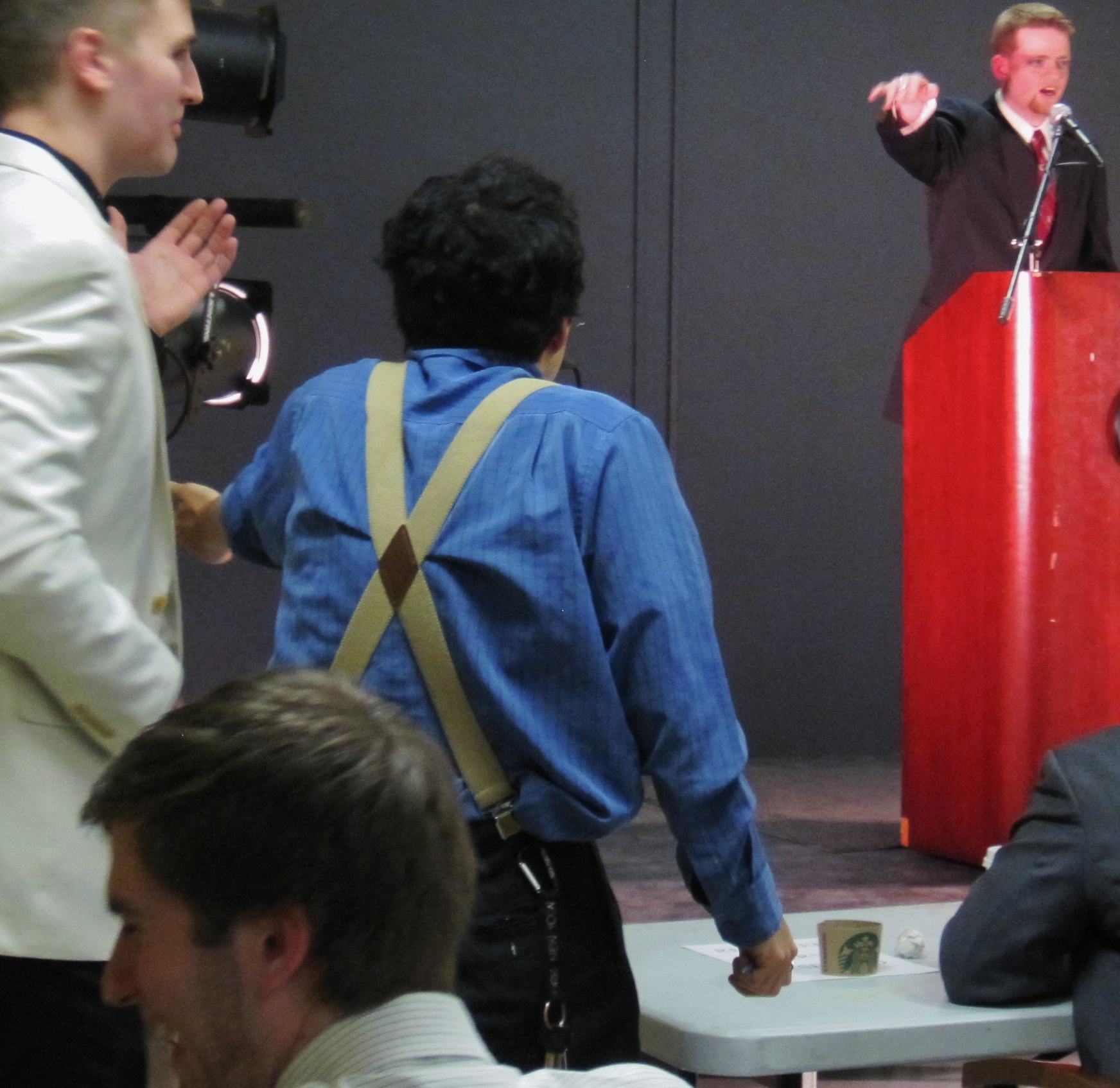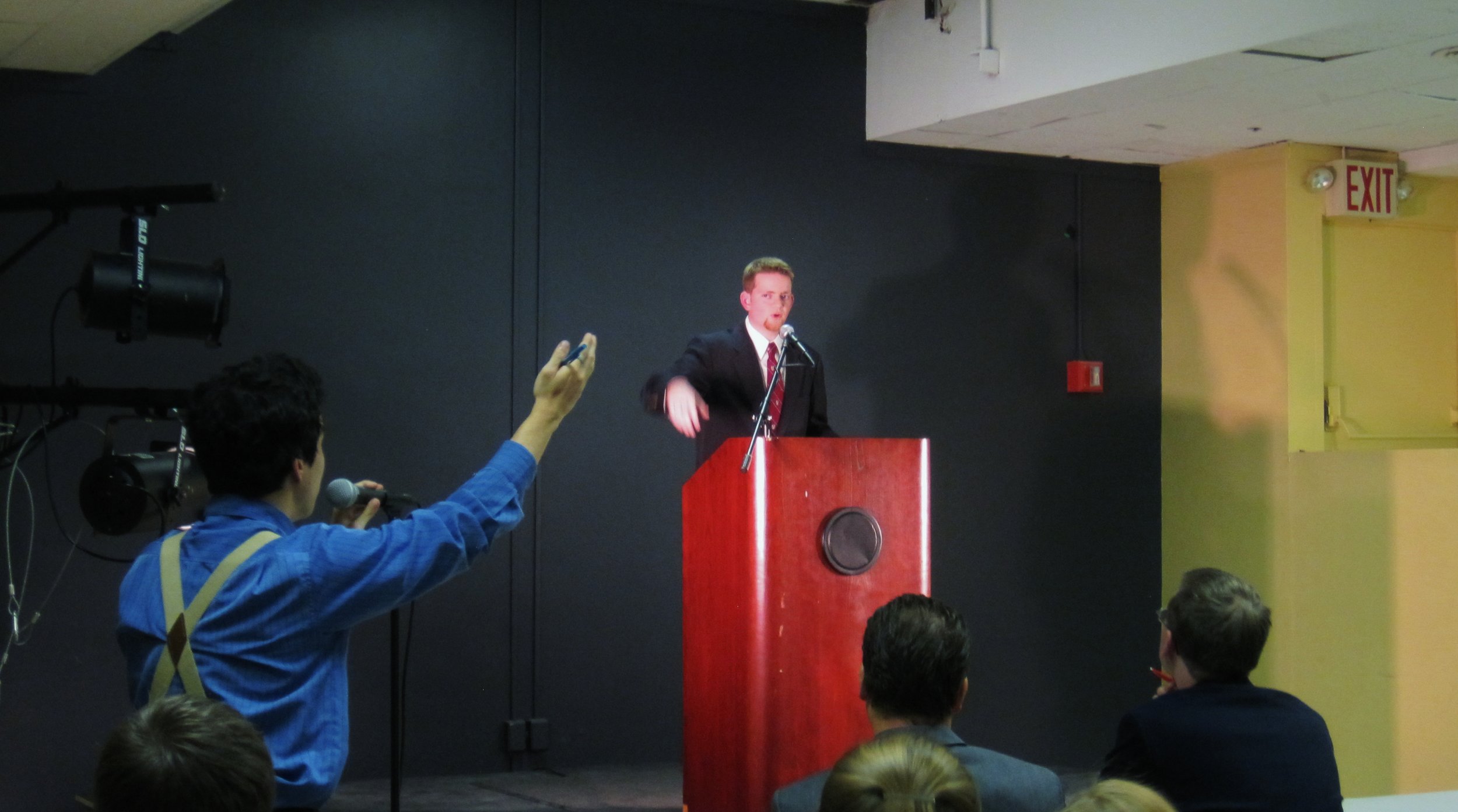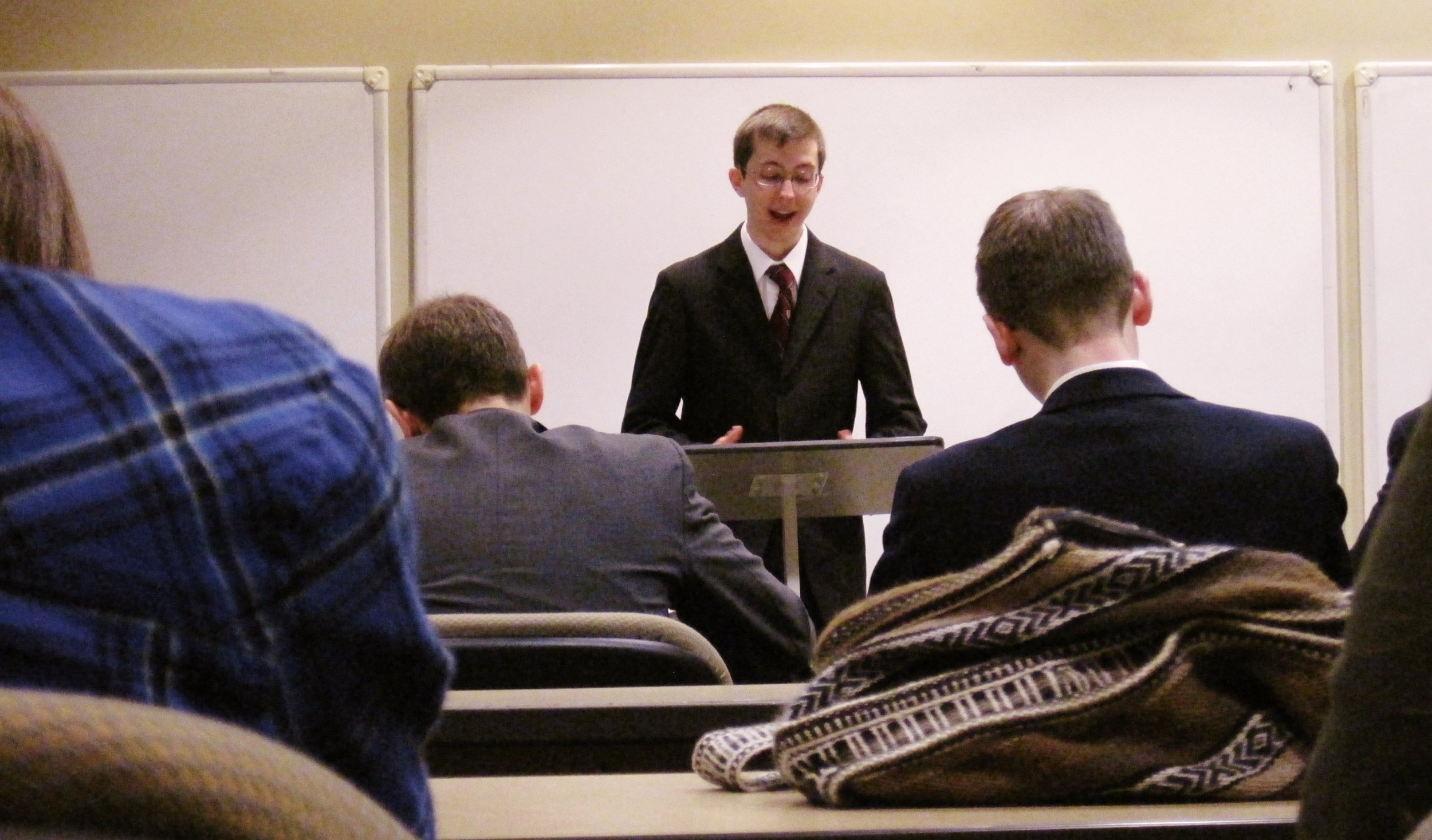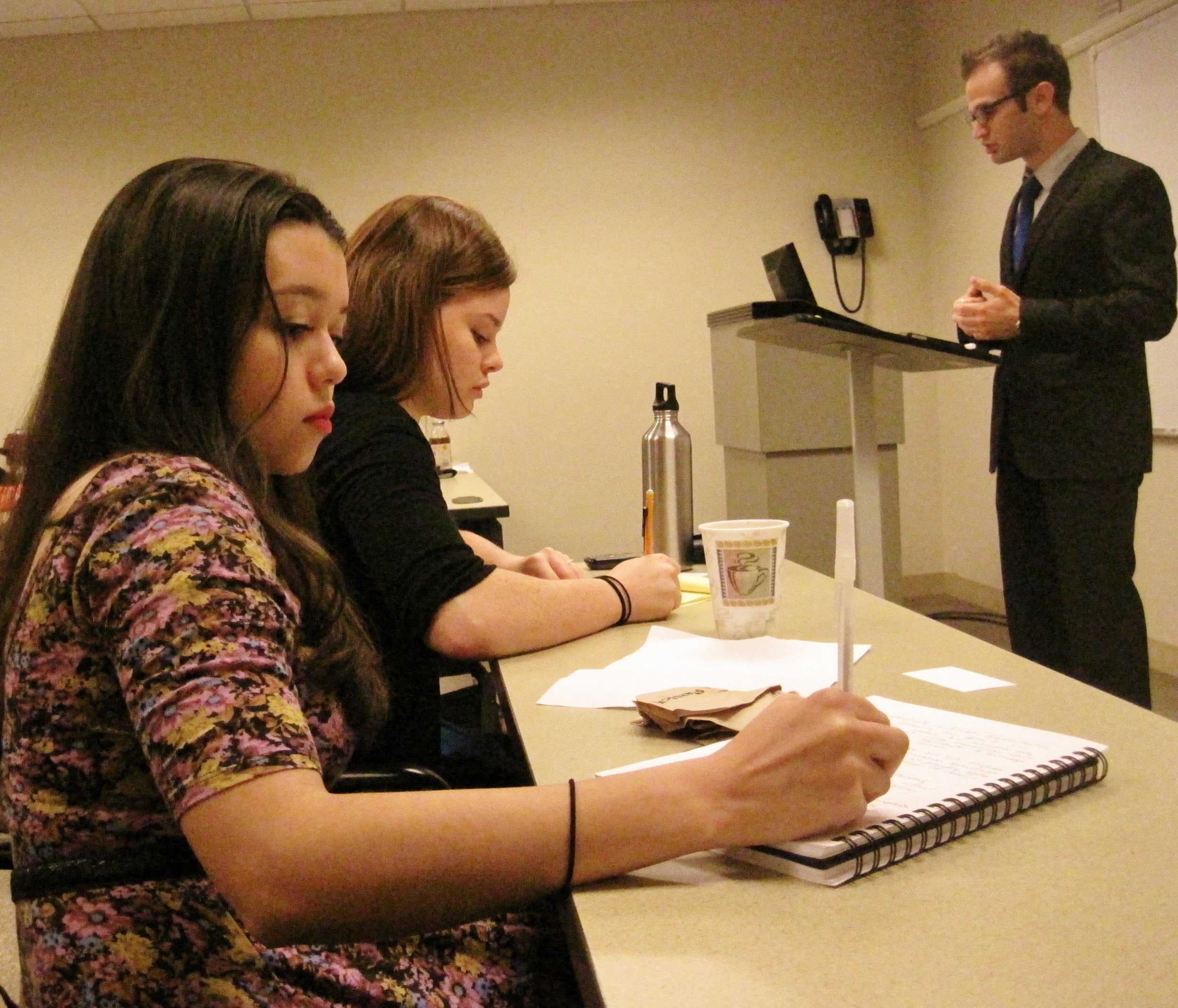Interregnum VIII: House of Lewis Wins Parliamentary Debate Tournament
 Empire State Building, NEW YORK– The parliamentary debate team from the House of C.S. Lewis won the Final Debate round Friday, Mar. 30, taking first place for the debate portion of Interregnum.
Empire State Building, NEW YORK– The parliamentary debate team from the House of C.S. Lewis won the Final Debate round Friday, Mar. 30, taking first place for the debate portion of Interregnum.
The Bonhoeffer team debated on the government side of the motion, affirming that "this house would remove all state benefits to the married," and the Lewis team debated on the opposing side.
The Bonhoeffer team said the removal of state benefits would reduce taxes and encourage couples to marry for reasons nobler than finances. It also maintained that state benefits wrongfully turn marriage into a political issue, because the church, not government, should control marriage.
The Lewis team said the state exists to promote good, and since marriage is a laudable institution, state benefits function as an act of praising good within society. It also detailed the practicality of state benefits, such as their provision of visitation rights. It highlighted that financial benefits facilitate marriage for economically challenged couples.
The Bonhoeffer team's case left Lewis team member DuBois somewhat surprised. "I was expecting arguments that challenged the traditional acceptance of heterosexual, monogamous families," he said. "But I think Bonhoeffer chose a really good case."
Bonhoeffer team member Sailer said he was a "little frantic" during the round, because he lacks knowledge of advanced constitutional theory.
Nevertheless, he also felt he held his own, especially since "Greg and Josiah are scary debaters."
According to the debaters, the round seemed relatively well-matched in the areas of skill level and the nature of the motion.
Five faculty members judged the round: Provost Calvin White, Prof. Katie Teubl, Dr. David Bentley Hart, Dr. Mattew Parks and Dean of Students David Leedy.
Two teams from each House participated in the Interregnum debate tournament beginning Wednesday, Mar. 28 and continued arguing motions based on the theme of Tradition vs. Innovation until Friday, Mar. 30.
The teams paired off in rooms to debate topics including prioritizing international and minority student recruitment at King's, caring for aging parents and preferring King Arthur's rule to rule of the people.
Dr. David Tubbs, a long-time Interregnum debate judge, commented on the quality of the rounds. "I've seen steady progress through the years," he said.
In one round, debater Michael Mascitto ('15) argued against federal funding for online education, saying that online education is inferior to the traditional form and therefore should not receive federal funding.
"We should fund things we want to see grow. Online education is a lesser model of traditional education, because it hinders communication between students and teachers and makes it easier for students to cheat," he said.
In another round, Obayashi held that pro-life voters should pick a candidate who makes abortion a top priority over a candidate willing to compromise. "If we compromise, we will eventually get to the point where this issue cannot be solved peacefully," he said in support of the motion.
QE1 debated Lewis and Bonhoeffer debated Churchill in the semifinal round on Friday, March 30. They discussed the motion "this house believes that the Constitution is a living document."



